

As an outsider looking in, one might not understand how much history has been in the making for Minnesota’s Sol of the Cities. This soccer story began decades ago for the Mario and Sparkle Wimberly duo.
Mario was a self-described “first generation soccer kid.” Having moved to Minneapolis as a two-year-old, his parents, native to the South, didn’t know much about soccer. Mario’s family then moved around quite a bit, and it was during his time living in the suburbs that Mario was first exposed to soccer. “It was almost like I didn’t really have a choice, but as I started playing the game, I really liked it,” Mario remembers. “And I begged my mom to keep me going in the game. Clearly, there was a financial barrier with pay-to-play. There always is. But she managed somehow doing more than I think she probably should have to help me play.”
Mario’s love for the game would lead him to play on travel teams as a kid, four years of varsity soccer in high school, and then as a collegiate athlete at Howard University. Mario says these experiences gave him the opportunity to see that this was the world’s game. “I was often the only Black kid playing in Minneapolis, but when I went to Howard – bit of a culture shock. The whole team’s Black. The coaches are Black, kids are from the Caribbean, kids from Africa, as well as the United States. So [it was a] great experience there.”
Sparkle’s introduction to the game came a bit differently. Having grown up in the Bay Area, Sparkle wasn’t really exposed herself to the sport, but knew it was definitely being played. Sparkle also attended Howard, where she met Mario, and always remembers watching the athletes from her dorm. “I would sit in this big window and watch the athletes come back from the gym area, and there were these guys, and their shin guards would just be like flapping on their shins.”
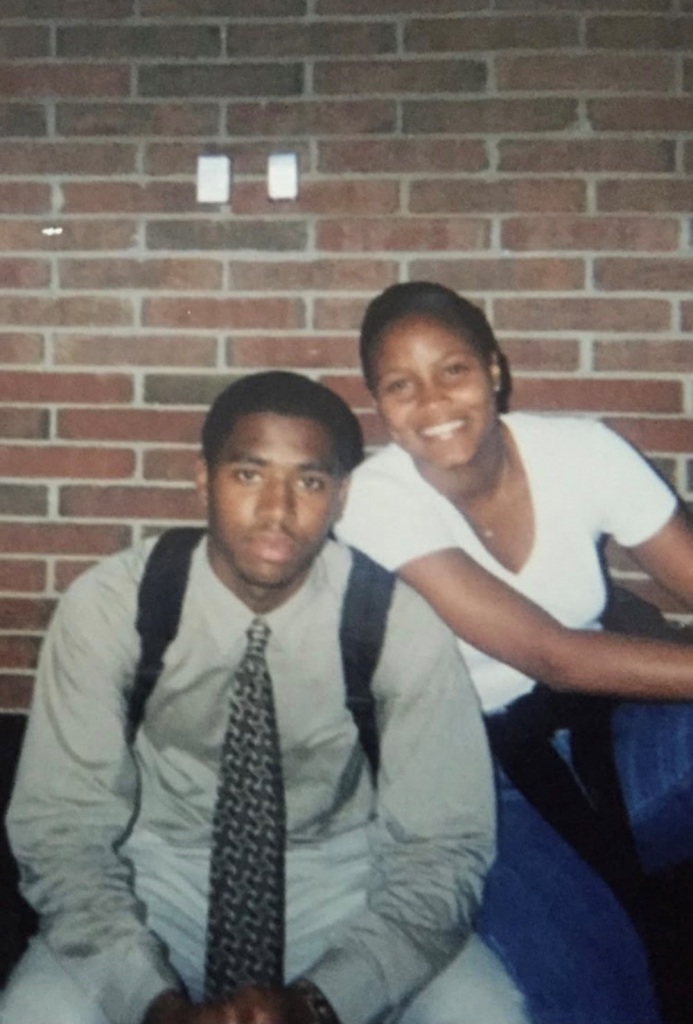
Fast forward a bit and the two start their life in Minneapolis. Soccer takes a back seat as they focus on running their commercial cleaning business. Then they welcome their son Kamran into the world.
But as Kamran starts to learn to walk, soccer resurfaces. “The next thing I knew, we had this size two ball,” Sparkle says. “Then we had them all around and Kamran really had a ton of self-discovery as to what he was going to do with them. He just never picked it up and threw it. He always kicked it.”
As Kamran got older, he followed in his dad’s footsteps. And Sparkle and Mario renewed their passion as well. “We signed him up for the local rec program, and Sparkle stepped right in became the commissioner of the league,” says Mario. “We worked to get everything in order because soccer’s serious for us and it’s serious fun. But at the grassroots level, I think a lot more could be done. We wanted the kids to actually walk away with some foundation of how to play the game, how to master the ball, because kids drop out of soccer too early.”
“We took that whole place over and we started coaching my son as well as probably another six or seven kids, boys and girls at that time,” Mario continues. “I’m super proud of this story because those same kids now are juniors and sophomores, and I’m still in touch. And we feel proud that we gave them the foundation in the game and we’re there to support them outside of the game as well.”
Shortly thereafter, Kamran attended a futsal session, and the wheels kept turning for Sparkle and Mario. “We didn’t used to call it futsal,” says Mario. “I just played in the gym and I played with the soccer ball. Clearly futsal has a lower bounce ball, a smaller ball, a bit different rules, but pretty much soccer.”
But as they started to integrate small-sided soccer into their rec league programming, the benefits were clear. “I just noticed the kids really falling in love with the game,” says Mario. “The kids were very engaged as opposed to sometimes in rec we’d have a kid who would not be engaged in the game. We literally had a kid sit down crisscross-applesauce and just start picking flowers.”
“The thing about futsal is that it’s fast-paced, nonstop,” he continues. “Everyone’s involved and there’s tons of developmental benefits to the game. Whether you go soccer or futsal, it’s the foundation of development in my opinion.”
“But in our local area, there were maybe one or two organizations that had dabbled in futsal. But we, being entrepreneurs, wanted to have a place where our kid as well as his friends and other kids from our area could just play the game without any barriers and politics. We just wanted them to play.”
Sparkle also wanted to create an environment where kids could learn the foundations of the game without any barriers – and to grow to love the game in the ways that she and her family had. “Our kid is a talented player and he’s always kind of had a spark and a love for the game. It’s how he learned about nations and countries,” she says. “But if he could feel this way and then we can help other kids feel this way and build connection to the game even if their goal wasn’t to become an elite player of sorts, that would be our goal.” So that’s what they set out to do when they created Twin Cities Soul, their newest futsal academy.
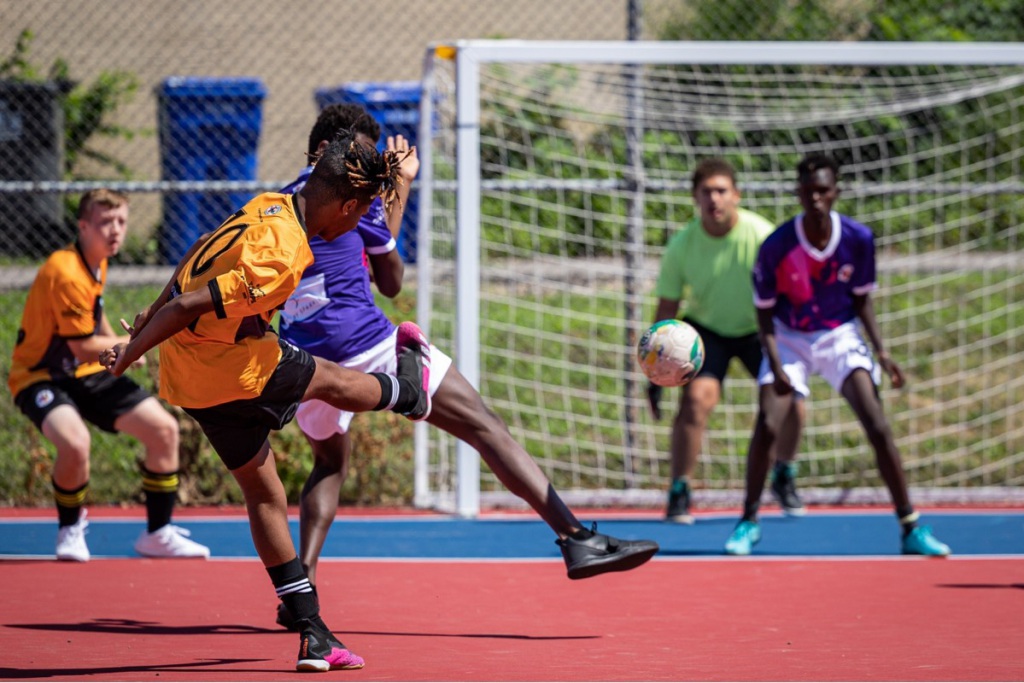
TC Sol started in the gyms of a few St. Paul schools. But as they continued to build out their programming, they knew they needed to have outdoor spaces too. “In Minnesota, there are seven months of winter, so everything you do when it’s not winter needs to be outside. Everything needs to be outside,” Sparkle emphasizes.
They also understood that, to make the sport more accessible, they needed to develop a new model that would be inclusive and address the barriers that typically exclude communities from participating, namely the pay-to-play system that prices children and families out of enjoying all the benefits that come with playing soccer. And so was born the TC Sol spin-off, Sol of the Cities, an annual futsal league that operates through their self-described, “serve-to-play” model. Instead of a financial commitment, youth participants complete community service hours in exchange for participating in structured futsal programming. Service projects have included tree-planting, trash clean-ups, and acquiring clothes for donation efforts.
Luckily, it was a quick search Mario and Sparkle connected with the school department and found the U.S. Soccer Foundation mini-pitches at Johnson Senior High School to operate the outdoor futsal league. “It’s a perfect place for us. And what it did was really raise the level. That’s what we heard from a lot of our participants when we had our first year on basketball courts and then moved to the futsal courts – it raised the level of the team.”
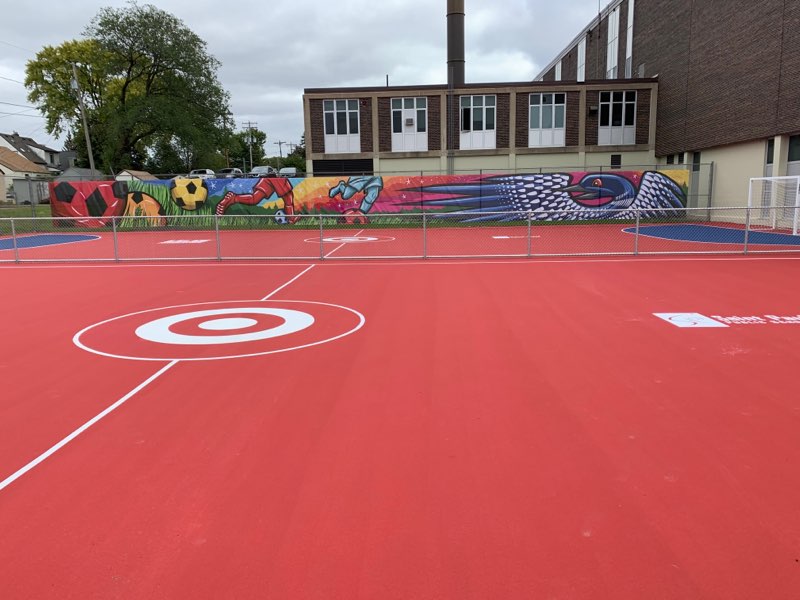
Mario also agrees that the mini-pitches elevate the experience for kids. “It gives the kids a feeling of they’re still in the city, but it’s almost like, ‘I’m in a pro game.’ For the smaller kids especially, it’s like being in a professional atmosphere.”
“I love the environment,” says one coach, Mike. “The excitement and energy were there as soon as the players arrived. Lots of touches, lots of opportunities for creativity and problem-solving…just lots of involvement and action for the players.”
Perhaps most importantly, the mini-pitches provide access and inclusion to the game in a way they hadn’t seen before. “I’ve seen a big push by the U.S. Soccer Foundation [to provide access], and that’s what we need just because we have a big accessibility problem,” says Mario. “It’s one of our four core principles of TC Sol: fun, development, community, and access. When we talk about where we activate, it’s inner-city programming. We have kids from all over the metro area and we don’t exclude anyone who wants to play the game.”
For Sparkle, it’s also important that girls can see themselves in the sport and see that this can be their sport. “I think that sometimes, the game is too focused on girls’ athleticism versus their technical ability or their vision for the game,” she says. “And that’s always tough to watch because I love watching players dance on the ball and just kind have their way, their will in their way with it. And with girls, if they have a lot of athletic ability, oftentimes, as they have to get more technical and more specific, we lose them.”
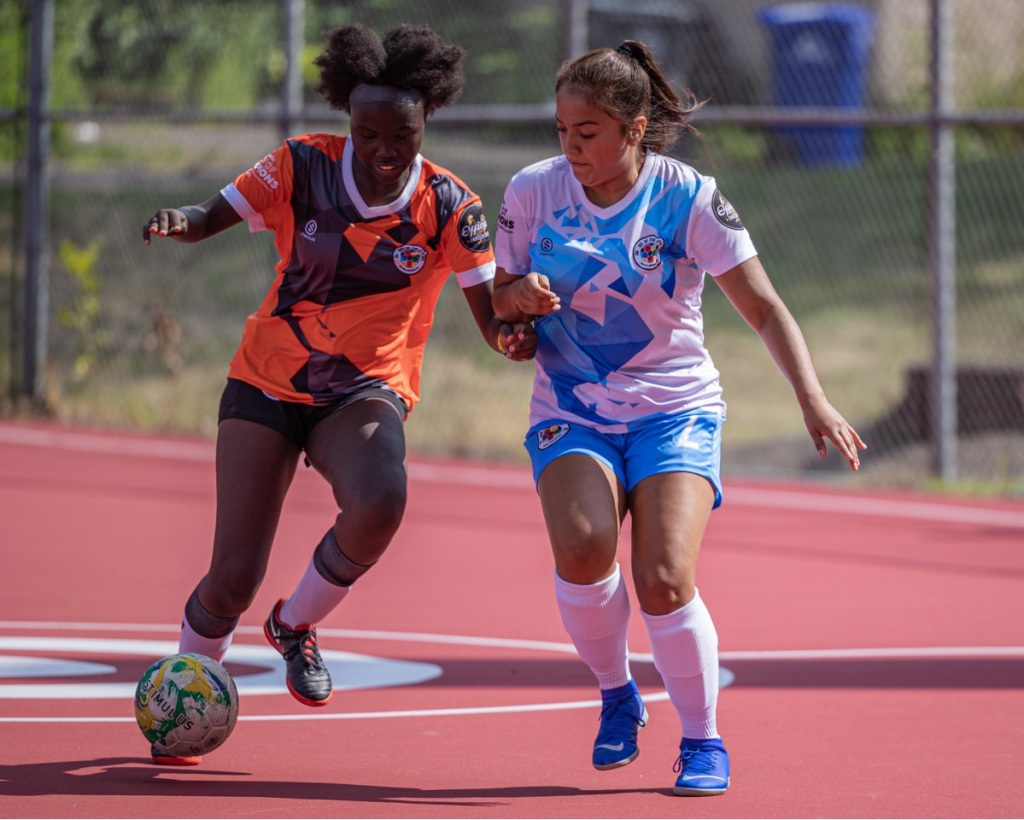
“Kids drop out of soccer because it’s not fun if you cannot manipulate the ball, hold onto the ball, share the ball,” Sparkle continues. “You’re just chasing, running around and you’re like, ‘This is dumb. I’m going try something else.’”
One way that both Mario and Sparkle address the barriers to access and drop-out rates is to facilitate all-gender teams. “It’s just not something that we see on a regular basis,” Sparkle remarks. “And I really feel like it does girls a disservice to how they’re going to have to interact in the world and in life. It really is not about the physicality. It is about being a smart player, making quick decisions, like all sorts of life skills that really could be impactful.”
“And I’m not saying that we need to go head-to-head, that girls are better than boys, but I want them to have the confidence to not even think about that. If you love the game, then you’re going to play wherever the game is played with whoever’s playing the game.”
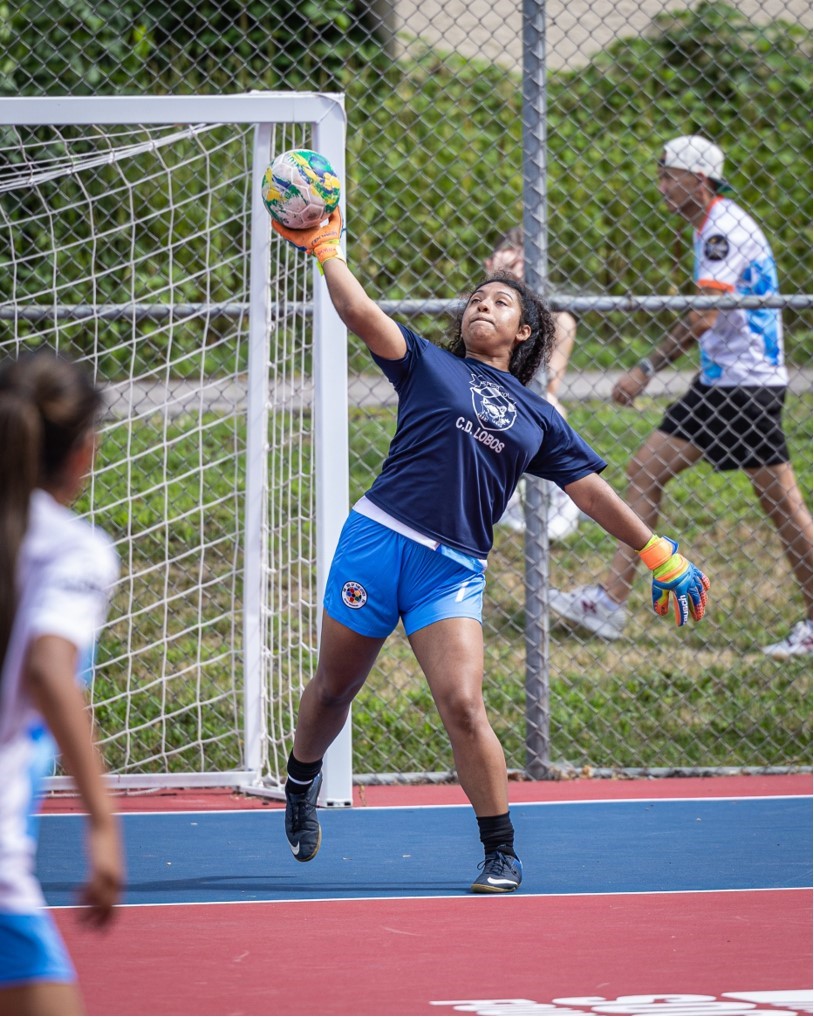
Participants are also finding that the exposure they get on the mini-pitches creates an awareness that they might not get to practice as much on a full field – and this awareness breeds confidence.
“Futsal courts will expose you,” says Mario. “There’s not a ton of space to run in, so you have to be able to get out of pressure.”
“Yes, it’s a collision sport, but are we intentionally colliding because we are not using our technical ability? Is that our best way to win the ball? Are you understanding how do you want to approach this game?” says Sparkle. “I want women to approach the game thinking about it and using their body and their mind in the harmony of playing the beautiful game. That’s what I want to see.”
One participant who has done just that is Sparkle’s and Mario’s 13-year-old daughter, Kayden, who has been playing soccer for almost a decade. She says that playing on the mini-pitches is a lot more fun because there are less people and you can get more touches on the ball. They’ve also taught her ball mastery skills, she says, such as “how to control the ball, how to open up your body, and different moves and ways to trap the ball.”
As players have spent more and more time on the mini-pitches, the Sol of the Cities players’ skills have shone through. “I like how close and compact the mini-pitches are,” says youth participant, Jacob. “It makes it so that you have to use your team and certain skills more than others. It made me feel more comfortable playing on the bigger field. I was definitely getting more touches on the ball than I would on the full-sized field.”
Jacob’s teammate Carter also remarked that futsal on the pitches is “fast paced and always had a high energy level.” He says that playing futsal on the small pitch, “helps a lot with footwork skills, as well as making quick decisions and positioning without the ball.”
Coach Mike reiterates this positional awareness piece. “I noticed players gained a better understanding of all the different things that go into speed of play as well – first touch, body position, movement, thought, and more,” he says.
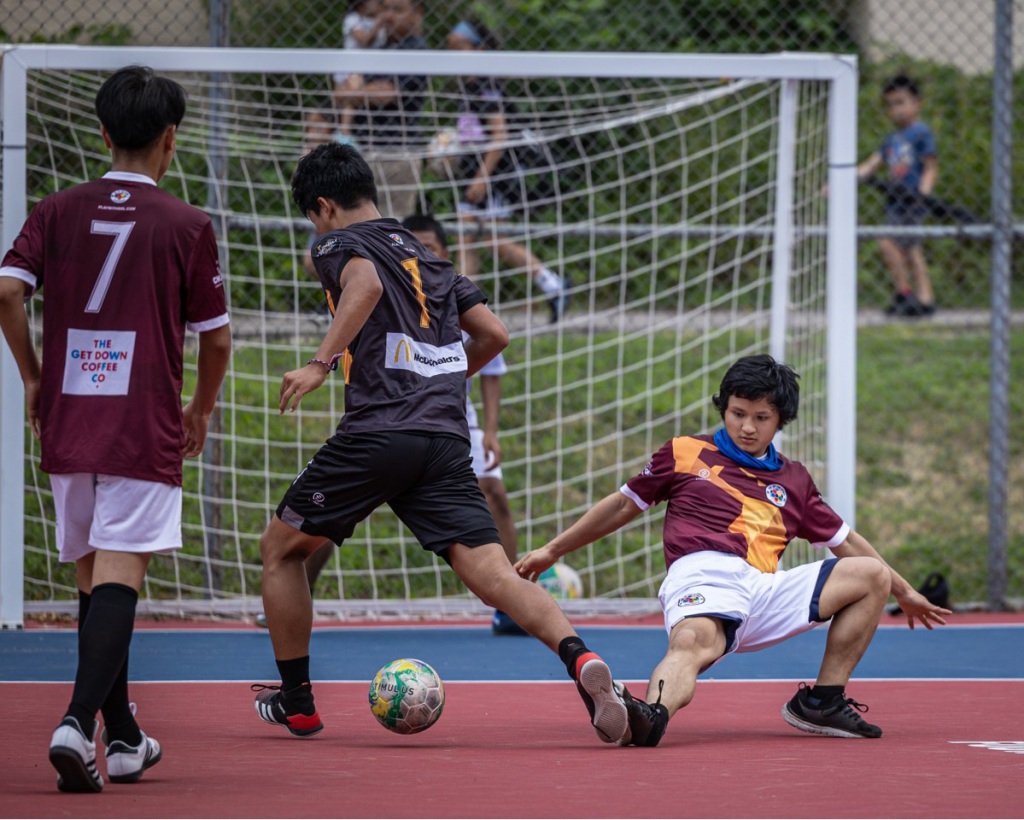
But he’s also seen his players both learn to lead and learn to work as part of a team as they play together in this fast-paced environment. “I like that the game allows players to learn and work on their individual skills, but it also challenges them to think about how to help each other and play together as a team. Most of all, I love how they take ownership of their games: they talk strategies, tactics, when and how to sub, and more. It is their game. As coaches, we want players to love the game – and to see players excited about the space and show up by choice week after week is encouraging and exciting.”
“When they talk about [playing on the mini-pitches], all of them talk about the pace of the game and how much action there was,” Coach Mike continues. “They learned that individual skills were needed, and they needed to be constantly engaged and thinking about what was happening around them. We had high school aged kids playing, and everything they learned and all parts of the game will translate to their club and high school games, which is great, but the fun they had playing, along with the opportunity to meet, play against, and learn from new people in a fun environment is something I think they’ll always remember.”
What is undisputable is that the skills participants learn will continue to serve them on the pitch, with their friends, and in life.
To learn more about Safe Places to Play mini-pitches, click here. Do you have a site in mind that could be great for a new mini-pitch? Suggest a location here.